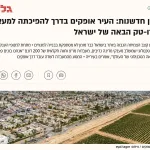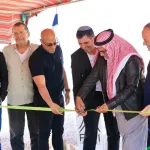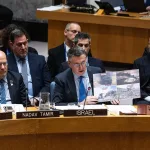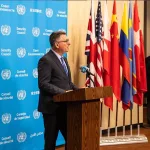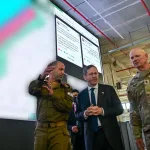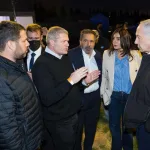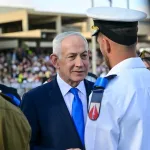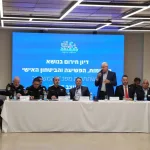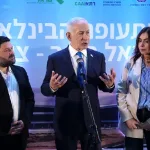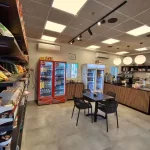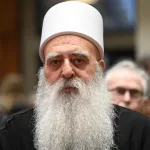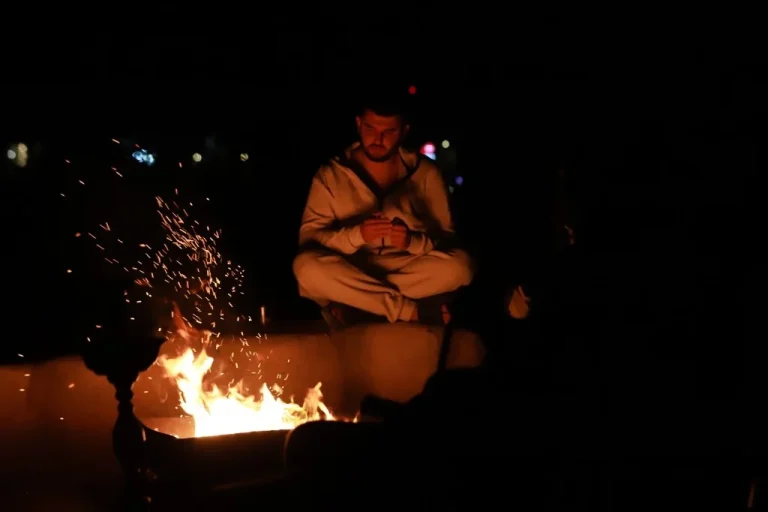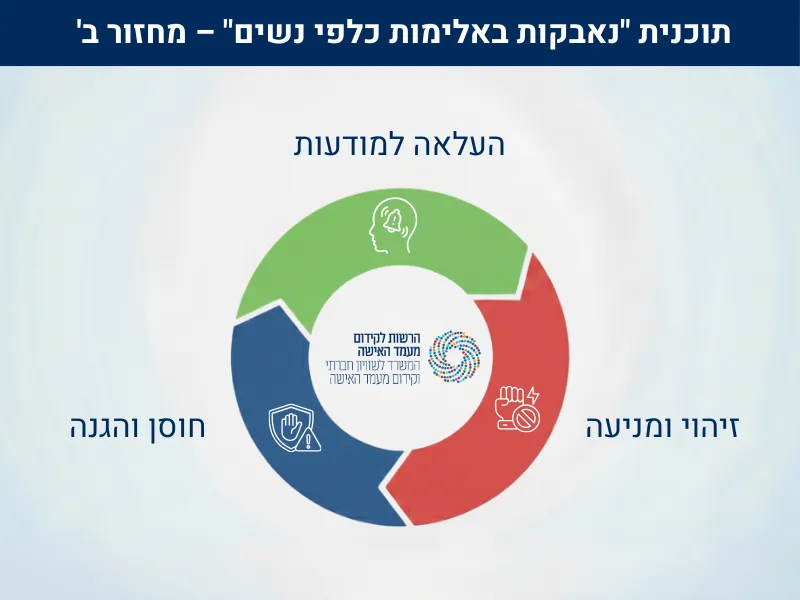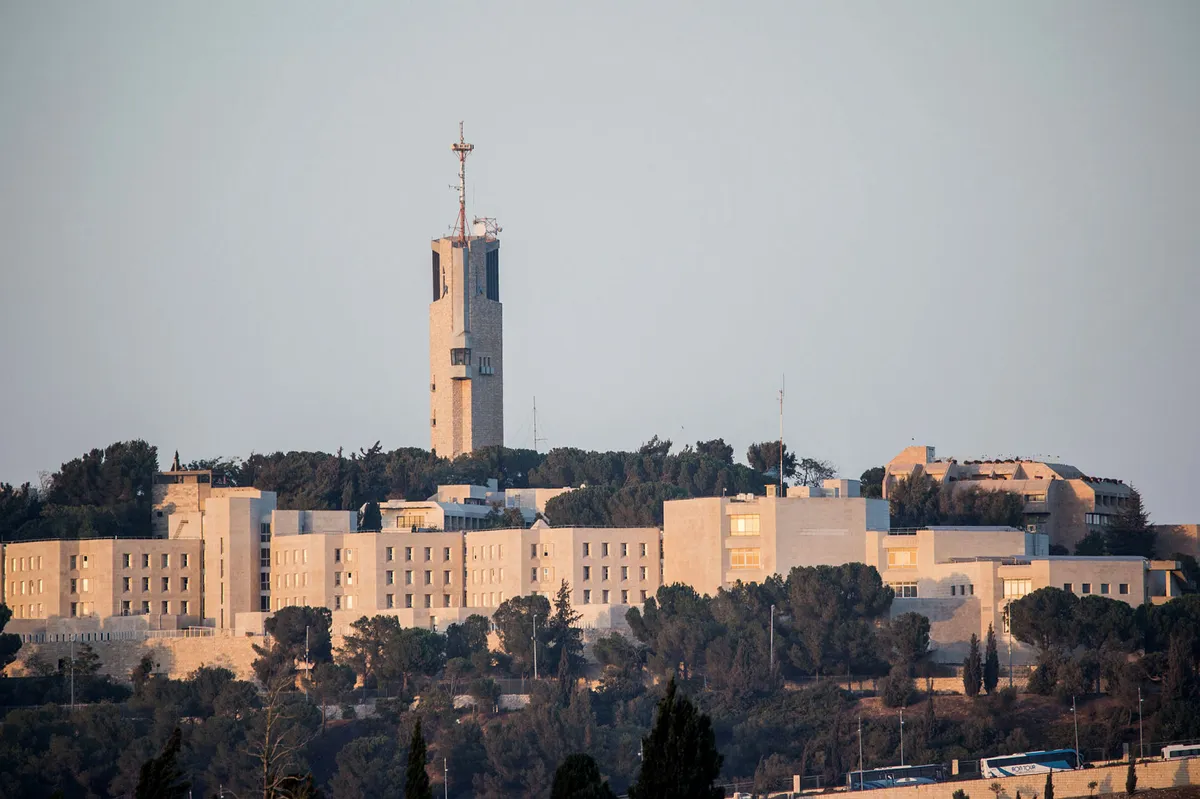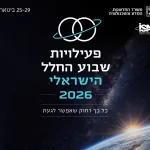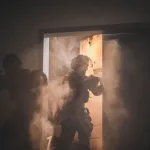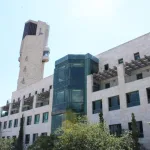Jerusalem, 26 October, 2025 (TPS-IL) — Golden dust rose over the Negev as a convoy of jeeps wound its way through the desert, each vehicle carrying a volunteer and a wounded soldier. For two days, members of the Round Table 5 association — a volunteer network of Israeli businesspeople — set out to bring light, rest, and renewal to those wounded in body and mind by war. It was a journey through open landscapes and invisible wounds.
The journey began in Shoham before veering off the asphalt roads into the raw desert. As the jeeps climbed the Negev’s Zin Valley, tension began to ease. The rising dust seemed to blanket the weight of daily worries, revealing something softer beneath the surface.
One of the participants, Yuval, a pseudonym, agreed to speak but asked not to be photographed. “I’d rather not be recognized,” he said quietly. “Even my family and friends don’t know I was injured.” Yuval lives with post-traumatic stress disorder, and he admitted that joining the trip was difficult. “I think a lot of it was thanks to Golan,” he said, referring to one of the volunteers. “He just saw me, saw my needs, and listened.”
At Ein Akev, the group stopped to cool off in a desert spring. Laughter echoed between the cliffs as soldiers and volunteers shared snacks and stories. Among them was Atara, a smiling young woman from, Caracal a mixed-gender combat battalion. “I’m from a Haredi family who became religiously observant later in life and lived in Elad,” she said. “I’m the only one who came back with questions. But my parents accept me very well.”
Atara was wounded on October 7. “We jumped to support the Snaai outpost in the surrounding communities,” she recalled softly, avoiding details. For her, the trip offered rare joy. “I’ve never been on a trip where I had so much fun with people,” she said, smiling as she spoke.
As night fell, the group arrived at the Tzel Midbar inn near Mitzpe Ramon for dinner, a stand-up show, and a bonfire under the desert stars. Around the flames, the conversations deepened. “At first, I thought I was a great hero and I suppressed everything,” said Amit, a soldier who survived a suicide bombing. “You suppress until everything explodes.”
The campfire talks revealed wounds as real as any visible scar. In two years of war, more than 20,000 soldiers have been injured, half under the age of 30. Since the October 7 attack, more than 3,700 soldiers have been diagnosed with post-traumatic stress disorder (PTSD), while another 9,000 have applied for recognition.
The following morning, the jeeps rolled into the Ramon Crater. At one lookout, three fighters climbed onto a roof, arms around each other, gazing into the vast horizon. “Scenes like this help me forget for a moment the hardships of today,” said a soldier who had been wounded in Gaza.
Among the volunteers was Golan Barak, who drove a pickup loaded with supplies. A bereaved father and brother, Barak lost his son, Corporal Tamir Barak, in battle near Kisufim, and his brother, Benny Brooks, in the Yom Kippur War.
“This is how I heal,” Barak said. “By helping others heal.”
Coordinating the effort was another Golan — Golan Maimon, a software manager from Ramat Gan and member of Round Table 5. “‘Round Table’ is an international club with about 40,000 members in 60 countries,” he explained. “Here in Israel, we focus on giving to the community.”
“Our meetings are among good people who volunteer purely for the joy of doing good,” he said. “No salaries, no offices, no vehicles. Everything is donation-based.”
Maimon described the group’s philosophy as a balance between fun and meaning. “I once read that happiness comes from combining momentary pleasure and purpose,” he said. “That’s what drives us. There can be no giving without joy.”
That spirit drew more than 50 private jeep owners, doctors, paramedics, cooks, and even a hairdresser. “People come for the experience,” Maimon said, “but they stay because they see the impact.”
One of the volunteer drivers, Maayan Tirangel from Holon, summed up the mood. “Since October 7, every Israeli is trying to help in some way,” she said. “Whether it’s bringing food, transporting equipment, or giving soldiers a break like this — it all comes from the same place.”
By the end of the journey, the desert dust clung to the jeeps and the people alike, marking not just a physical trail but a shared passage from pain toward light.

